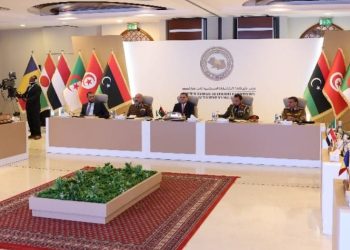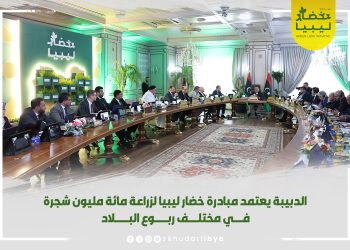By Elmehdi Hendi.
Tripoli, 5 May 2013:
In a wide-ranging TV interview on the eve of Congress’ vote on the Political Isolation Law, . . .[restrict]Ali Zeidan accused those behind the sieges of several government ministries in Tripoli of having personal political ambitions.
The Prime Minister said that he was personally in favour of the law but was deeply opposed to the tactics used by the militias in their support of it. Zeidan said that behind them were individuals who, having been rejected at the ballot box last year, were using the issue to further their own political goals.
He did not mention names but it is thought he may have been referring to Adel Ghariani, who stood for Congress last year and who has been one of the spokesmen for the militias besieging the ministries.
Despite his opposition to their actions, Zeidan was confident that the situation would be resolved peacefully. The government, he told Libya Al-Ahrar, Libya TV, Alassema and Libya Alhura, were in constant dialogue with the revolutionaries surrounding the ministries and, with perseverance, would see an end to the crisis.
Responding to accusations that some former Qaddafi associates had been appointed as ambassadors, Zeidan denied he had had ever done so. There had been some appointed or kept in place by the National Transitional Council because they had joined the revolution right from the start, but he stressed that all ambassadors had subsequently been approved by Congress.
Asked as to why he had appointed some individuals over whom there were questions about their suitability as ambassadors, he said that he had not based his decisions on what others wanted, but whether they were the right person for the job. Specifically asked about Abdulhafed Gaddur who was disbarred by the Integrity Commission in May last year as Libya’s ambassador to Italy, he stressed that it was the NTC that left him in his position and not himself.
Similarly, asked about Ali Al-Aujali, Libya’s ambassador in Washington whom he nominated as Minister of Foreign Affairs, the Prime Minister replied that he knew the man very well, that he was an experienced diplomat, that he had stood up against Qaddafi from the first day of the revolution and that he, Zeidan, had not had any concrete evidence against the man. He added that when an accusation was brought against him, he was suspended until an appeal cleared him. However, Aujeli then declined the position and opted for early retirement.
Turning to remarks made by the President of Chad in which he accused Libya of harbouring and training members of the Chadian opposition, Zeidan denied it, insisting that Libya would not be a source of threats to any neighbouring country. Libyan fighter jets, he added, had flown over about 100 kilometers of Chadian territory and found the region to be empty of any inhabitants. He stressed the same points when asked about his reply to the remarks made by Niger’s foreign minister, Mohamed Bazoum, who on Thursday claimed that militant Islamists had set up bases in southern Libya and were posing a growing threat to his and other neighbouring countries.
Question about the $2 billion deposited in Egypt’s Central Bank, he replied that the money was not a loan but rather a deposit for safe keeping, adding that giving support to Egypt and its security helped Libya’s security and therefore of benefit to Libya.
On the matter of the billions-worth of stalled major projects across the country, the Prime Minister confirmed that contracts had been drawn with 80 national companies to start new projects in addition to a number of foreign companies returning and starting work in various Libyan towns and cities, notably Benghazi, Derna, Kufra and Ghat.
He noted that some them had wanted to leave again because of the recent events but that he, himself, had reassured them to remain.
Accused of leading an inefficient government that was not even able to protect its institutions, Zeidan stressed his government had begun, from its first day in office, to recruit and train the police and work on the re-establishment of a national army. It needed time, he said. His government came into office only a few months beforehand. Work in the first month had been concentrated on preparing the budget, while the second month was used to get it approved. Only recently had it started distributing the budget and would start by constructing residential buildings, schools and the renovation of hospitals. The outcome would be seen in reality in the near future.
As to the widespread corruption throughout state institutions, Zeidan stated that it was a legacy of 42 years Qaddafi’s rule. He believed that the new national identity number project would play a major role in reducing huge state expenses. So far people had been discovered being paid more than 50 wages. The new system would eliminate bogus wage claimants for good, he believed.
[/restrict]








